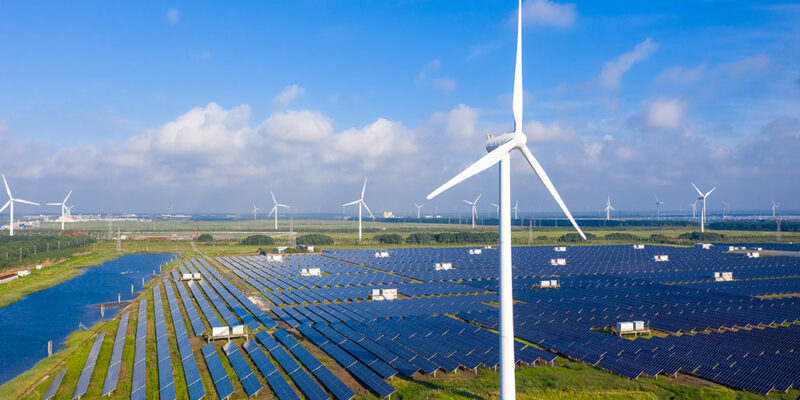
Renewable energy is energy that is generated from natural sources that are replenished over time. This includes sources such as sunlight, wind, water, and geothermal heat. Renewable energy is often contrasted with non-renewable energy sources, such as fossil fuels, which are finite and will eventually run out.
There are many benefits to using renewable energy. Renewable energy is clean and does not produce greenhouse gases, which contribute to climate change. Renewable energy is also domestically produced, which can reduce our reliance on foreign oil. And renewable energy is becoming increasingly affordable, making it a more viable option for meeting our energy needs.
There are a number of different renewable energy technologies available. Some of the most common include:
- Solar power: Solar power is generated by converting sunlight into electricity. Solar panels can be installed on homes and businesses, or they can be used to generate electricity on a larger scale at solar power plants.
- Wind power: Wind power is generated by using wind turbines to convert the kinetic energy of wind into electricity. Wind turbines can be installed on land or offshore.
- Hydropower: Hydropower is generated by using the force of running water to turn a turbine, which generates electricity. Hydropower dams are built across rivers to create reservoirs of water, which is then released to generate electricity.
- Geothermal energy: Geothermal energy is generated by using the heat from the Earth’s interior to generate electricity or heat buildings. Geothermal power plants can be located near hot springs or volcanoes, or they can be drilled into the Earth’s crust to access geothermal heat.
- Biomass energy: Biomass energy is generated from organic materials such as wood, crops, and food waste. Biomass can be burned to generate heat or electricity, or it can be converted into liquid fuels such as ethanol and biodiesel.
Renewable energy is a growing industry, and there is a lot of potential for growth in the future. As the cost of renewable energy technologies continues to fall, and as the demand for clean energy grows, renewable energy is likely to play an increasingly important role in meeting our energy needs.
Here are some of the challenges that need to be addressed in order to increase the use of renewable energy:
- Cost: Renewable energy technologies can be more expensive than traditional energy sources, such as fossil fuels. This is one of the biggest challenges to the widespread adoption of renewable energy.
- Intermittency: Renewable energy sources, such as solar and wind, are not always available. This can make it difficult to rely on renewable energy to meet our baseload electricity needs.
- Storage: Renewable energy sources can be intermittent, so it is important to have ways to store the energy that is produced when it is available. This can be done using batteries or other technologies.
- Infrastructure: In order to increase the use of renewable energy, we need to invest in new infrastructure, such as transmission lines and power plants. This can be a costly investment.
Despite these challenges, there are many reasons to be optimistic about the future of renewable energy. The cost of renewable energy technologies is falling, and the demand for clean energy is growing. As these trends continue, renewable energy is likely to play an increasingly important role in meeting our energy needs.
Here are some of the benefits of using renewable energy:
- Reduces greenhouse gas emissions: Renewable energy sources do not produce greenhouse gases, which contribute to climate change. This is one of the most important benefits of using renewable energy.
- Creates jobs: The renewable energy industry is a growing industry, and it is creating jobs in a variety of sectors, such as manufacturing, installation, and operation.
- Reduces our reliance on foreign oil: Renewable energy is domestically produced, which can reduce our reliance on foreign oil. This can help to protect our national security and reduce our trade deficit.
- Improves air quality: Renewable energy sources do not produce air pollution, which can improve air quality and reduce the number of respiratory illnesses.
Overall, renewable energy is a clean, affordable, and domestically produced source of energy that has the potential to reduce our reliance on foreign oil, improve air quality, and create jobs. As the cost of renewable energy technologies continues to fall and the demand for clean energy grows, renewable energy is likely to play an increasingly important role in meeting our energy needs.



